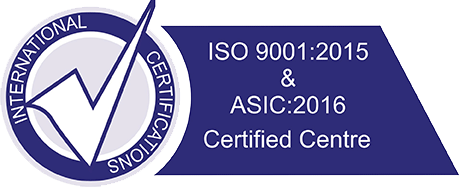Preparing for IVF: Tips for a Successful Treatment In-vitro fertilization (IVF) is a complex and often emotionally challenging process that many couples turn to when trying to conceive. While IVF success rates have significantly improved over the years, it is crucial to be well-prepared for the journey ahead. By taking specific steps before starting IVF, you can enhance your chances of a successful treatment outcome. In this blog, we will discuss some valuable tips to help you prepare for IVF and optimize your chances of achieving a successful pregnancy.
Seek professional guidance and counselling
Embarking on an IVF journey can be overwhelming, both physically and emotionally. It is highly recommended to seek professional guidance from fertility specialists, reproductive endocrinologists, and experienced counsellors. These professionals can provide you with valuable information, answer your questions, and help you navigate the emotional roller coaster associated with fertility treatments. Building a strong support system early on can greatly improve your overall experience.
Understand the IVF process
Educate yourself about the IVF process to better understand what to expect at each stage. Learn about the various treatment protocols, medications, and procedures involved in IVF. Familiarise yourself with the potential risks and complications and the success rates associated with different age groups and fertility diagnoses. This knowledge will empower you to make informed decisions throughout the treatment journey.
Adopt a healthy lifestyle
A healthy lifestyle is crucial when preparing for IVF. Focus on maintaining a balanced diet rich in fruits, vegetables, whole grains, and lean proteins. Avoid excessive consumption of caffeine and alcohol. Stop smoking if you do it can negatively impact fertility. Engage in regular physical exercise, such as walking or yoga, to promote overall well-being and reduce stress levels. Maintaining healthy body weight is also important, as both obesity and being underweight can affect fertility and IVF success rates.
Start prenatal supplements
Begin taking prenatal supplements, including folic acid, several months before starting IVF. Prenatal vitamins containing folic acid are essential for early embryonic development and can help reduce the risk of neural tube defects. Consult with your healthcare provider to ensure you are taking the appropriate supplements and the recommended dosage.
Address underlying medical conditions
If you have any pre-existing medical conditions, it is essential to work with your healthcare provider to manage them effectively before undergoing IVF. Conditions such as polycystic ovary syndrome (PCOS), diabetes or thyroid disorders can impact fertility and the success of IVF treatment. By addressing these conditions early on, you can optimize your chances of a successful outcome.
Prioritize emotional well-being
The emotional aspect of IVF cannot be overstated. The treatment process can be mentally and emotionally challenging, often accompanied by feelings of stress, anxiety, and disappointment. Prioritize your emotional well-being by engaging in stress-reducing activities like meditation, counselling, or support groups. Lean on your partner, friends, and family for support, and don't hesitate to seek professional help if needed.
Financial planning and insurance coverage
IVF treatment can be financially demanding. Before starting the process, evaluate your financial situation and explore potential insurance coverage for fertility treatments. Research and understand the costs associated with IVF, including medications, consultations, procedures, and potential additional treatments such as genetic testing. Consider budgeting and exploring available financial assistance options, if necessary.
Communicate with your partner
Open and honest communication with your partner is vital throughout the IVF journey. Share your feelings, concerns, and expectations, and be supportive of each other's emotional well-being. IVF can put a strain on a relationship, so maintaining strong communication and seeking couples counselling if necessary can help you navigate the challenges together.
Stay organized and track your progress
IVF involves keeping track of appointments, medications, and test results. Develop a system to stay organized and ensure that you are following your treatment plan accurately. Utilize calendars, mobile apps, or a journal to track your progress, medications, and any side effects you may experience. Staying organized will help reduce stress and confusion during the treatment process.
Preparing for IVF is a multifaceted process that requires both physical and emotional readiness. By following these tips, you can optimize your chances of a successful IVF treatment outcome. Remember to seek professional guidance, prioritize your emotional well-being, adopt a healthy lifestyle, and maintain open communication with your partner. IVF can be a challenging journey, but with the right preparation and support, you can increase your chances of realizing your dream of starting or expanding your family.
Tags: Improving IVF success rates , Low Cost IVF Treatment

